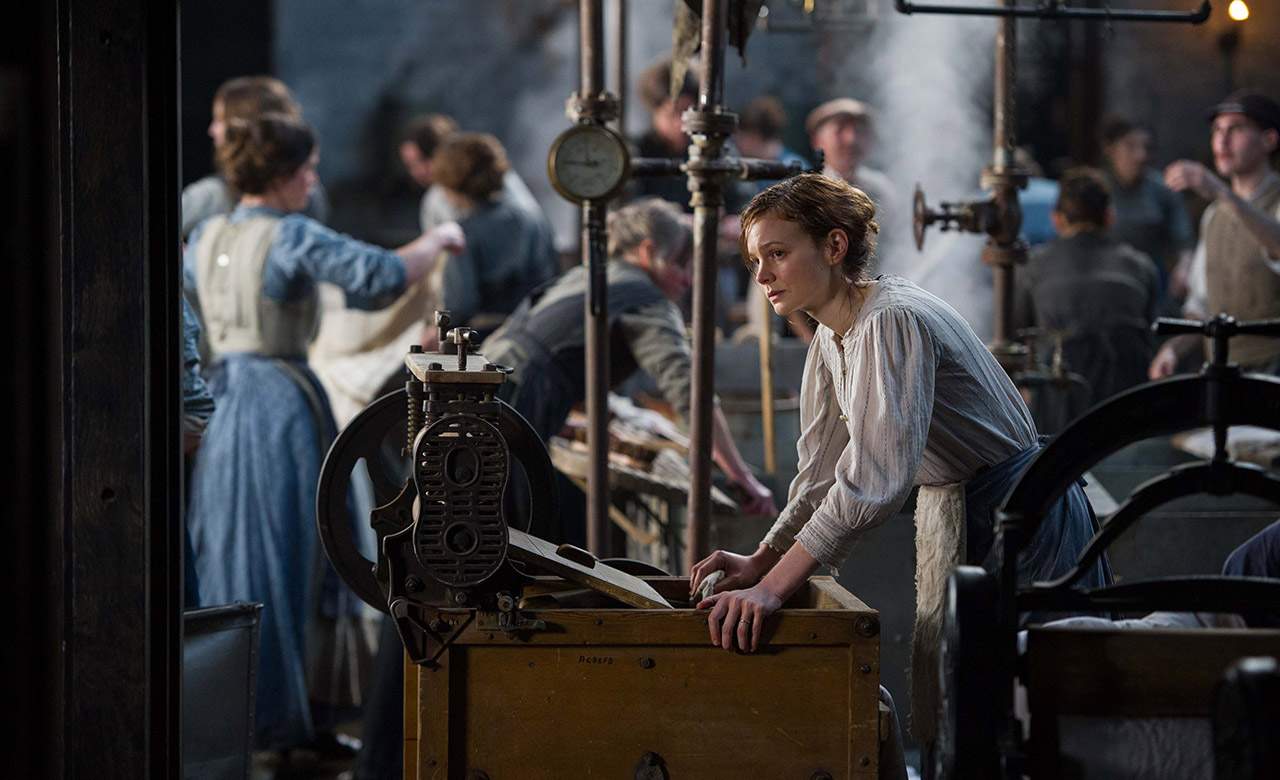Suffragette
A stirring if somewhat conventional tale about the fight for women's suffrage.
Overview
Years of labour are plastered across the face of Maud Watts (Carey Mulligan). She hasn't just toiled away in a sweatshop-like laundry since she was a child — she was born there, and had no choice but to follow her mother into the gruelling line of work. At the age of 24, and as a wife to Sonny (Ben Whishaw) and mother to George (Adam Michael Dodd), she thinks she knows what her future holds. Her story isn't unique. That's why it's important.
That's why Suffragette is important too. There's no mistaking the spirit that seethes through both the character and the feature. Both endeavour to subvert the status quo, give a voice to the masses and plead for gender equality. It’s a vital cause, embodied in an everywoman-type protagonist and an impassioned — albeit blunt and traditional — period drama.
Accordingly, Suffragette charts the horrors of Maud's reality while agitating for an alternative. And it does so via a simple but effective story. After seeing a brick thrown through a shop window as part of the crusading campaign, Maud is convinced by a colleague (Anne-Marie Duff) to find out more. She soon realises that she has to fight not only for the right to vote, but for a world in which she doesn't receive less pay for more work, watch her lecherous boss take advantage of the ladies under his supervision, or be expected to do what her husband tells her without question. The members of her group, the Women's Social and Political Union, are ignored, attacked, arrested and treated like criminals, forcing them to increasingly adopt more drastic measures.
Helena Bonham-Carter appears in a supporting role as an ailing chemist and activist, while Meryl Streep pops up in a blink-and-you'll-miss-it appearance, giving a speech as real-life movement leader Emmeline Pankhurst. Providing an example of the male power refusing to concede ground, Brendan Gleeson plays a police inspector determined to put the feisty femmes in their place. More than anything, however, Suffragette belongs to the woman behind its heroine. Once again, Mulligan is subtle but stirring, expressing more in her face and physicality than the dialogue can say, while also offering a convincing transformation from onlooker to instigator. Plus, she adds a second powerful feminist role to her 2015 resume after a similarly outstanding turn in literary adaptation Far From the Madding Crowd.
Mulligan is the standout player, but she's not the only highlight. Though the script by writer Abi Morgan (The Iron Lady) is earnest, obvious and rather conventional, director Sarah Gavron (Brick Lane) doesn't waste a frame — or a handsomely lensed image — in conveying its point. And while the end result may be heavy-handed, that doesn't lessen the film's message or its impact. Tellingly, its strongest statement remains long after the credits roll. Suffragette may take viewers back more than a century, and much may have changed since then. But the battle for parity among the sexes is far from over.





